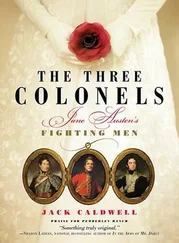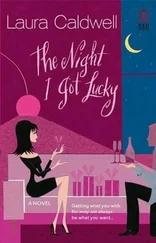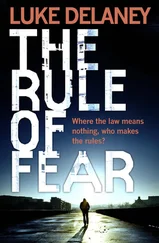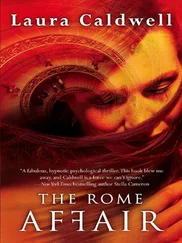Richard would never try to take something from me, Paul says, biting at a nail. We must've missed something.
A hush settles in. The practice room is warm, and when we're both quiet there's no sound at all, besides an occasional hum from down the hall, where Gershwin has been replaced by a Beethoven sonata that rumbles in the distance. It reminds me of sitting through summer storms as a child. The power is out, the house is quiet, and nothing can be heard besides the roll of far-off thunder. My mother is reading to me by candlelight-Bartholomew Cubbins or an illustrated Sherlock Holmes-and the only thing on my mind is how the best stories always seem to be about men in funny hats.
I think it was Vincent in there, Paul says. At the police station he lied about his relationship with Bill. He told them Bill was the best graduate student he'd advised in years.
We both know Vincent , Stein's letter said. It's fair to say he has plans of his own for anything that comes of this.
You think Taft wants it for himself? I ask. He hasn't tried to publish anything on the Hypnerotomachia in years.
This isn't about publishing, Tom.
What's it about?
Paul stays quiet for a moment, then says, You heard what Vincent said tonight. He's never admitted before that Francesco was from Rome. Paul looks down at the pedals of the piano, jutting out from the wooden frame like tiny gold shoes. He's trying to take this away from me.
Take what away from you?
But again Paul hesitates. Never mind. Forget it.
What if it was Curry in the museum? I offer, when he turns away. The letter from Stein to Curry has complicated my vision of the man. It reminds me that he was more taken with the Hypnerotomachia than any of them.
He's not involved, Tom.
You saw how he acted when you showed him the diary. Curry still thought it was his.
No. I know him, Tom. Okay? You don't.
What's that supposed to mean?
You never trusted Richard. Even when he tried to help you.
I didn't need his help.
And you only hate Vincent because of your father.
I turn to him, surprised. He drove my father to-
To what? Run off the road?
Drove him to distraction. What the hell's wrong with you?
He wrote a book review, Tom.
He ruined his life.
He ruined his career. There's a difference.
Why are you defending him?
I'm not. I'm defending Richard. But Vincent never did anything to you.
I'm just about to dig into Paul, when I see the effect our conversation is having on him. He runs the base of his palm above his cheeks, blotting them. For a second I can only see headlights on the road. A horn is blaring.
Richard's always been good to me, Paul is saying.
I don't remember my father making a sound. Not once during that drive, not even when we skidded off the road.
You don't know them, he says. Either of them.
I'm not sure when the rain began-while we were driving to see my mother at the book show, or on the way to the hospital when I was riding in the ambulance.
I found this book review once of Vincent's first major work, Paul continues. A clipping in his house, from the early seventies, back when he was a hotshot at Columbia-before he came to the Institute and his career fell apart. It was glowing, the kind of thing professors dream about. At the end it said, 'Vincent Taft has already begun his next project: a definitive history of the Italian Renaissance. To judge from his existing work, it will be a magnum opus indeed; the sort of rare accomplishment in which the writing of history becomes the making of history.' I remember that, word for word. I found it spring of sophomore year, before I really knew him. That was the first time I started to understand who he was.
A book review. Like the one he sent my father, just to be sure he'd seen it. The Belladonna Hoax, by Vincent Taft.
He was a star, Tom. You know that. He had more going on upstairs than most of the faculty here combined. But he lost it. He didn't burn out, he just lost it.
The words are gathering momentum, crowding into the air as if a balance can be struck between the silence outside him and the pressure within. I feel like I'm swimming, flailing as the tide pulls me out. Paul begins to talk about Taft and Curry again, and I tell myself they're just characters in another book, men in hats, figments of the blackout imagination. But the more he talks, the more I begin to see them the way he does.
In the aftermath of the debacle surrounding the portmaster's diary, Taft moved from Manhattan into a white clapboard house at the Institute, a mile southwest of the Princeton campus. Maybe it was the solitude that got to him, the absence of colleagues to wrestle with, but within months, rumors of his drinking began to circulate through the academic community. The definitive history he'd planned quietly expired. His passion, his command of his gift, seemed to crumble.
Three years later, on the occasion of his next publication-a thin volume on the role of hieroglyphics in Renaissance art-it became clear that Taft's career had stalled. Seven years after that, when his next article was published in a minor journal, a reviewer called his decline a tragedy. According to Paul, die loss of what Taft had with Curry and my father continued to haunt him. In the twenty-five years that elapsed between his arrival at the Institute and his meeting with Paul, Vincent Taft published only four times, preferring to pass his time writing criticism of other scholars' work, especially my father's. Not once did he recover the fiery genius of his youth.
It was Paul's arrival at his doorstep during the spring of our freshman year that must've brought the Hypnerotomachia back into his life. Once Taft and Stein began assisting in the thesis work, Paul told me of startling flashes of brilliance in his mentor. Many nights the old bear toiled furiously alongside him, reciting long passages from obscure primary texts when Paul couldn't find them in the library.
That was the summer Richard funded my trip to Italy, Paul says, rubbing a palm against the edge of the piano stool. We were so excited. Even Vincent. He and Richard still weren't speaking, but they knew I was on to something. I was starting to figure things out.
I was staying in a flat Richard owned, the entire top floor of an old Renaissance palace. It was amazing, just gorgeous. There were paintings on the walls, paintings on the ceilings, paintings everywhere. In niches, above staircases. Tintorettos, Carraccis, Peruginos. It was like heaven, Tom. Just breathtaking, it was so beautiful. And he would wake up in the morning and say, all businesslike, 'Paul, I need to get some work done today' Then we'd get to talking, and half an hour later he would pull off his tie and say, 'To hell with it. Let's take the day off.' We would end up walking through the piazzas and just talking. The two of us, walking and talking for hours.
That's when he started telling me about his days at Princeton. About Ivy, and all of these adventures he'd had, these crazy things he'd done, these people he'd known. Your father, most of all. It was so alive, so vivid. I mean, it was unlike everything Princeton has ever been to me. I was just completely mesmerized. It was like living a dream, a perfect dream. Richard even called it that. The whole time we were in Italy, he seemed to be walking on clouds. He'd started seeing a sculptor from Venice, and was talking about proposing to her one day. I thought he might even try to reconcile with Vincent after that summer.
But they never did.
No. When we got back to the States, everything reverted. He and Vincent never spoke. The woman he'd been seeing broke it off. Richard started coming back to campus, trying to remember the fire he'd had when he and your father studied with McBee. Since then, he's been living more and more in the past. Vincent tried to get me to stay away from him, but this year it's Vincent I've been staying away from, trying to avoid the Institute, trying to work at Ivy whenever I could. I didn't want to tell him what we found until I had to.
Читать дальше












